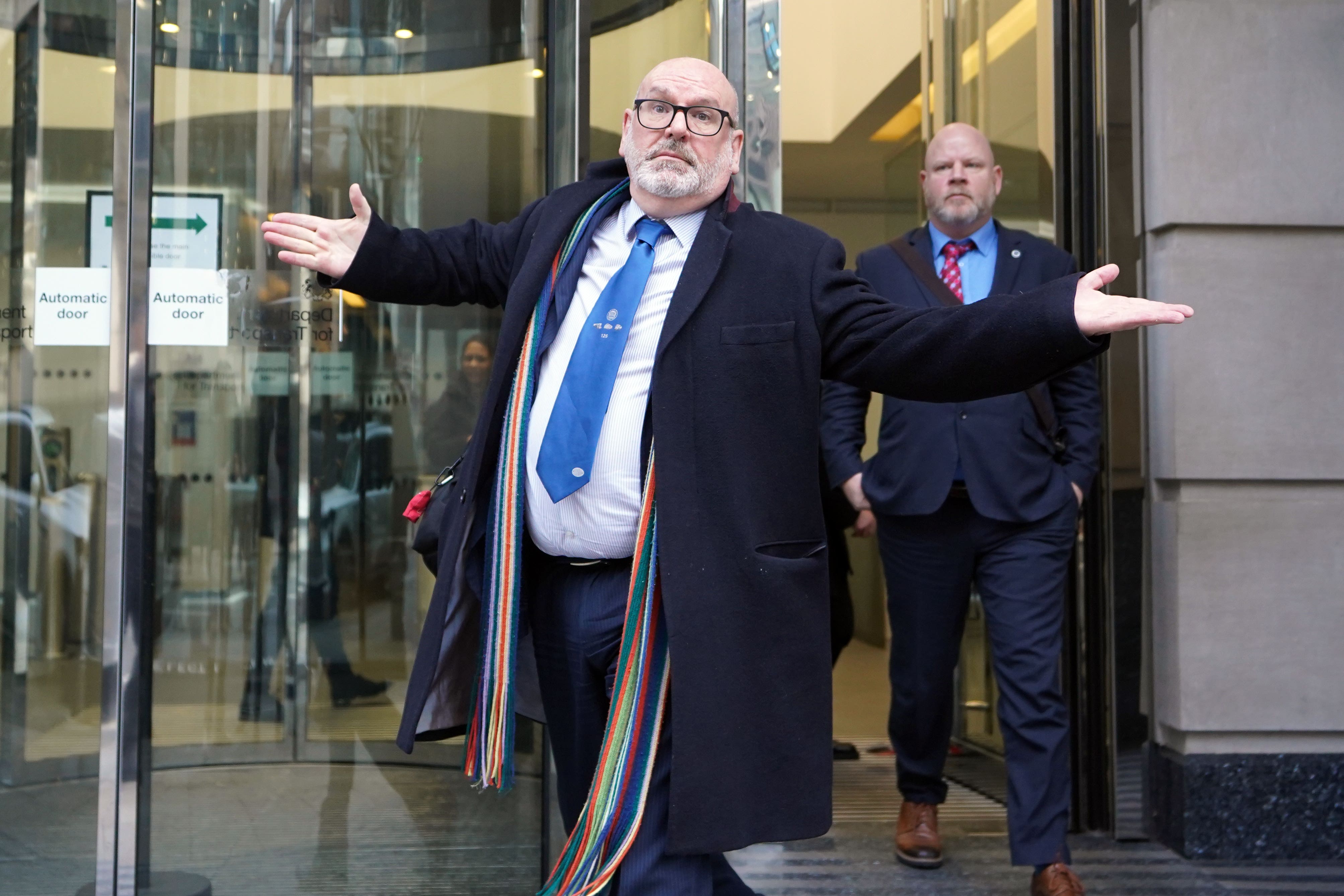Rail strikes: ‘We’re further away than when we started,’ says train union boss of negotiations
Rail dispute no closer to being resolved, says Mick Whelan

Your support helps us to tell the story
From reproductive rights to climate change to Big Tech, The Independent is on the ground when the story is developing. Whether it's investigating the financials of Elon Musk's pro-Trump PAC or producing our latest documentary, 'The A Word', which shines a light on the American women fighting for reproductive rights, we know how important it is to parse out the facts from the messaging.
At such a critical moment in US history, we need reporters on the ground. Your donation allows us to keep sending journalists to speak to both sides of the story.
The Independent is trusted by Americans across the entire political spectrum. And unlike many other quality news outlets, we choose not to lock Americans out of our reporting and analysis with paywalls. We believe quality journalism should be available to everyone, paid for by those who can afford it.
Your support makes all the difference.The long and bitter series of rail disputes show no sign of an early settlement, the leader of the train drivers’ union has warned.
Mick Whelan, general secretary of Aslef, told MPs on the Transport Select Committee: “We’re further away than when we started.”
He had been asked by Iain Stewart, the Conservative chair of the cross-party committee, to rate progress in negotiations.
Mr Stewart asked: “How close are we to having these disputes resolved, on a scale of one to 10 – whether with one, you remain on different planets, 10, I can go out and buy a hat for the wedding. Where are we?”
The Aslef boss said: “I think you include zero in your one to 10, and we’re further away than when we started.”
Frank Ward, interim general secretary of the white-collar union, the TSSA, said: “I wouldn’t disagree with that.”
But Mick Lynch, general secretary of the main rail union, the RMT, declined to give a figure. He said: “I wouldn’t be able to say. It depends on discussions. I wouldn’t use a scale, but we haven’t got an agreement. Until we get an agreement, we’re not close to it really.”
The committee chair responded: “That’s not as optimistic as I had hoped.”
The latest round of industrial action ended on Saturday 7 January – exactly 200 days after the first national strikes since the 1980s began in June 2022. The unions are involved in a tangled series of disputes over pay, job security and working arrangements with the infrastructure provider, Network Rail, and more than a dozen train operators.
The Department for Transport (DfT), which owns Network Rail and runs some train services through subsidiaries such as LNER, is also involved.
Members of the RMT union working for Network Rail have walked out for 20 days, with an overtime ban also in effect in December and early January.
The train drivers, who are in dispute with 15 train operators, have stopped work for six days, most recently on Thursday 5 January.
The following day the Rail Delivery Group, representing train operators, offered a 4 per cent pay rise in each of 2022 and 2023 – contingent on radical changes to working practices.
The RDG described the offer as “a landmark outline proposal that would deliver more reliable services for passengers”.
But Mr Whelan told MPs: “I cannot recommend any one element of it and it may destroy the ability to go back to those talks in future.
“There is not one line in that deal, from the opening comments to the final full stop, that I can recommend because the deal basically says we basically rip up every agreement we have, local and national, forever and a day.”
He said reaching a settlement would require a “clean pay offer” without strings attached.
The RDG said: “The offer is contingent on common sense, vital and long overdue changes to working arrangements across the industry.
“Many of these are already best practice in parts of the railway and are designed to avoid disruptive gaps in services. If accepted, the proposal would mean the base salary for the average driver would increase from £60,000, to almost £65,000 by the end of 2023.”
Mr Whelan rejected a suggestion that train drivers are relatively well paid.
He also revealed that he had not met the former transport secretary, Grant Shapps, at any time.
Join our commenting forum
Join thought-provoking conversations, follow other Independent readers and see their replies
Comments